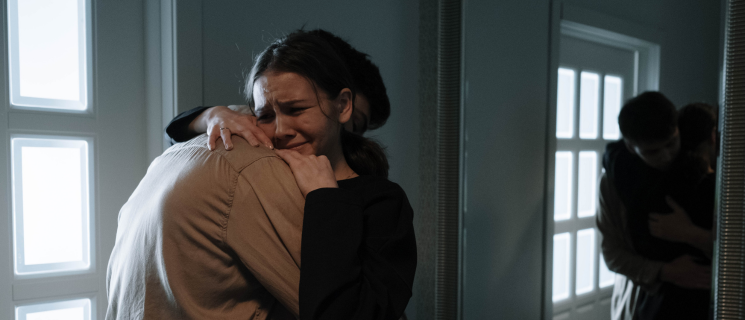Loss and Grief Therapy

Grief Therapy: Healing After Loss with Compassionate Support
Grief is a natural response to loss, whether it’s the death of a loved one, the end of a relationship, or the loss of a job or personal identity. Grief therapy helps individuals process and cope with the emotional pain and complex feelings that arise during times of loss. It provides a supportive environment where you can grieve at your own pace, explore your emotions, and find ways to heal from your experience of loss.
While grief is a deeply personal experience, it is not something you need to go through alone. Grief therapy offers compassionate guidance and emotional support to help you navigate the pain and uncertainty that comes with loss. With the right support, it is possible to heal, grow, and eventually find peace in the aftermath of your grief.
How Grief Therapy Works?
- Processing Emotions: Grief can trigger a range of emotions, including sadness, anger, guilt, and even numbness. Your therapist will help you acknowledge and process these feelings, without judgment.
- Navigating the Stages of Grief: While grief is not linear, there are common stages people experience, such as denial, anger, bargaining, depression, and acceptance. Therapy helps you move through these stages at your own pace.
- Creating a New Reality: Losing something or someone significant can leave you feeling lost and uncertain about your future. Grief therapy helps you adapt to your new reality by redefining your life and finding meaning after the loss.
- Finding Healthy Coping Strategies: Grief often causes stress and emotional upheaval. Through therapy, you’ll learn effective coping mechanisms to manage anxiety, sadness, or stress during difficult times.
- Honoring the Memory: Part of the healing process involves honoring the memory of what you’ve lost. Your therapist can guide you through rituals, remembrances, and activities that help you keep that memory alive in a healthy way.
Key Benefits of Grief Therapy
- Emotional Support: Receive a safe and compassionate space to express your grief and feelings of loss.
- Coping Skills: Learn practical strategies for managing emotional distress, anxiety, and sadness during the grieving process.
- Healing: Heal at your own pace with support, moving from the overwhelming feelings of grief to a place of acceptance and peace.
- Restoring Balance: Rediscover a sense of stability and balance in your life after a major loss.
- Building Resilience: Strengthen your emotional resilience, helping you cope with future challenges more effectively.
Who Can Benefit from Grief Therapy?
Grief therapy is for anyone who has experienced a significant loss in their life. Whether it’s the death of a loved one, the end of a relationship, or another major life change, therapy can provide much-needed emotional support. Common experiences that may benefit from grief therapy include:
- Loss of a loved one (family, friend, or pet)
- Divorce or breakup
- Loss of a job or career change
- The end of a significant relationship
- Loss of personal identity or life role
- Health-related changes or diagnoses
- Miscarriage or stillbirth
If you’re struggling with the emotional impact of any of these losses, grief therapy can help you process your emotions, find support, and begin the healing journey.
The length of grief therapy varies depending on the individual and the nature of the loss. Some people may find relief after just a few sessions, while others may require longer-term support to fully process their emotions. The healing journey is unique to each person.
Grief therapy helps by providing a safe space to express emotions, learn coping strategies, and work through the stages of grief. It also helps individuals redefine their life after a loss and find meaning in their experience.
During grief therapy, you can expect to explore your feelings related to the loss, discuss your grief process, and develop coping mechanisms. Your therapist will guide you through each stage of grief, helping you navigate emotions like sadness, anger, and guilt in a healthy way.
No, grief therapy can help with any form of significant loss. Whether it’s the death of a loved one, a divorce, a breakup, or the loss of a job or personal identity, therapy can help you process the emotions tied to any major life change.
Yes, grief therapy is particularly helpful for those experiencing anxiety due to loss. The therapy process helps you work through overwhelming feelings of fear or anxiety, teaching you how to cope and regain a sense of emotional balance.
Grief therapy specifically focuses on processing the emotional pain and challenges related to loss. It’s tailored to address the unique emotions and struggles associated with grief, helping individuals heal from their personal experiences of loss.
If you're struggling to cope with the emotional pain of a loss, feeling overwhelmed, or finding it difficult to move forward, grief therapy may be beneficial. It can help you process emotions in a healthy way and provide the support needed to heal.
Yes, grief therapy is effective for healing after a breakup or divorce. It helps you process the emotions tied to the end of a relationship, allowing you to move forward with a sense of closure and emotional resilience.
To begin your grief therapy journey, simply book an initial consultation. Your therapist will work with you to understand the nature of your loss and guide you through the healing process.
